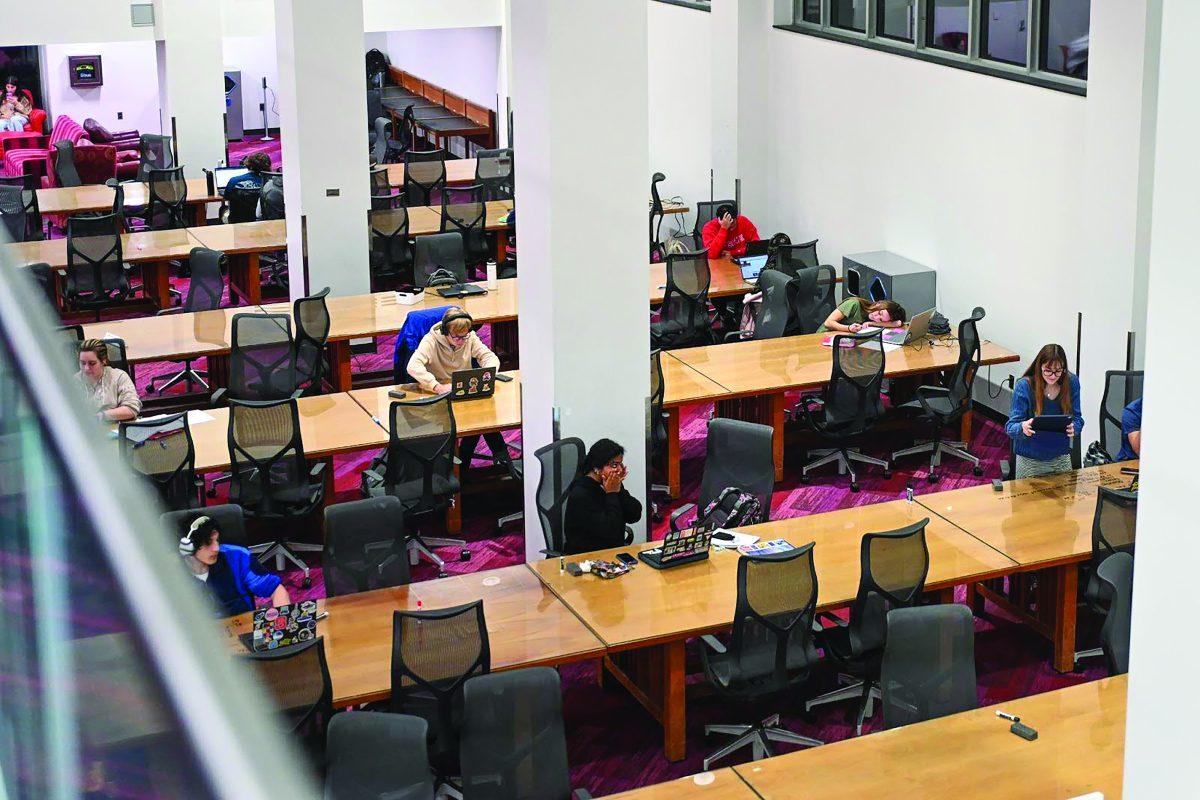Brinson Smith has been a vegetarian for about eight years now.
For Smith, a sophomore in textile and apparel management, the choice to stop eating meat came from what she recalled as a troubling experience.
“I first stopped eating meat when I was at 4-H, and they butchered a rabbit while I was there, and I was so upset that I stopped eating meat after that,” Smith said.
Prior to this, Smith didn’t eat red meat and said she had always been an animal lover. She said cutting meat completely out of her diet wasn’t too big of an adjustment.
“The only bad part is when going out to eat, my options are more limited,” she said. “There have been a lot of times out eating somewhere I have ordered something without the meat and have received it with meat on it, like pasta dishes, etc. I hate having to send it back, but I have gotten a little used to it over the years,” Smith said.
Smith said she realizes it’s important to get all the nutrients she needs within her diet, so she consumes a lot of soy products for protein — soy milk, for example. She also eats artificial meat products, beans and nuts.
Lisa Eberhart, a University Dining dietitian, said having a vegetarian diet can be very healthy — if done correctly.
According to Eberhart, there are different categories of vegetarians. A true vegetarian does not eat any meat, be it red meat, poulty or seafood. A lacto-vegetarian consumes dairy products, but cuts out all meat. An ovo-vegetarian eats no meat, but will eat eggs. A step beyond being a vegetarian is being vegan. This diet does not include any animals or animal byproducts.
Eberhart urges anyone pursuing any of these lifestyles to be sure to still get the proper nutrients and minerals in their diet. Vitamin B-12 is a big concern for vegans because it is only found naturally in animal products. Eberhart made a point of saying that the damage from a B-12 deficiency is irreversible and extremely bad for you.
“Think carefully of what the diet entails,” she said.
Eberhart warned against being what she likes to call a “french-fry vegetarian,” meaning one who subsists without compensating for the missed nutrients found in meat.
She said vegetarians should have a very wide variety of foods to be sure to include all the essentials they need.
“Half your plate should be fruits or vegetables — the more colorful, the better,” Eberhart said.
She also said cutting out meat from your diet is a very good way to reduce the chances of developing certain diseases such as diabetes, high blood pressure and heart disease.
Sara Picone, a sophomore in psychology, was a vegetarian for two and a half years but has now reverted to old habits.
“I had respect for animals, and I knew I could survive without supporting killing them for me to eat,” she said. “I knew they would be killed anyway, but I always thought in my two and a half years, how many animals did I save without my consumption?”
Picone said she noticed throughout her time as a vegetarian that she was tired all the time and had no energy.
“I was always sleeping, like 17 hours a day,” she said. “I’d wake up to go to class, come back to my room and sleep some more.”
Picone recalled going to the Health Center to evaluate her habits. She said her doctor learned she was severely anemic, which is an iron deficiency in your blood many vegetarians can suffer from.
Picone said she thought she was eating well, consuming the Boca Burgers and Morningstar Farms products, but it wasn’t enough.
“I started to eat some meat again. It was weird for me to think what I wanted to eat first — I had salmon steak,” she said.
Once Picone started eating meat again, she noticed she had more motivation and energy to actually get up and do things.
“I felt alive again,” Picone said.




